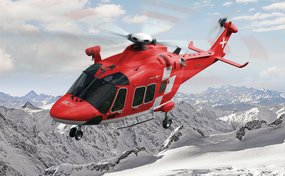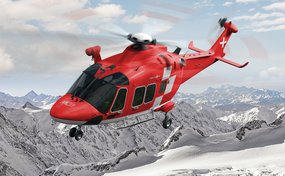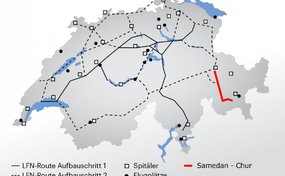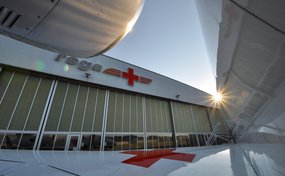Thanks to satellite-based navigation, it is now possible to perform flights according to instrument flight rules (IFR) independently of fixed installations on the ground. The Swiss Air Force and Skyguide air navigation service have been working together with Rega for a number of years to develop a countrywide network of instrument flight routes known as the Low Flight Network (LFN) and to implement the corresponding approach flight procedures. When visibility is poor, the helicopter flies by autopilot along a route stored in the on-board computer, rather like on a motorway – a considerable benefit in terms of safety. These IFR flight routes link airports, airfields and in particular hospitals with each other.
On 23 December 2017, the Federal Office of Civil Aviation (FOCA) granted Rega a special authorisation to use key intersections of the LFN around the clock. Rega had already been able to use various sections of the network, but only in the daytime on weekdays – a considerable restriction in view of the unpredictable nature of Rega's missions. Further expansion measures are planned to allow the entire LFN to be used at night, as well as to link other hospitals and regions, such as the Engadin, with the network of instrument flight routes. In addition, Rega would like to have unrestricted use of the military approach flight procedures outside normal operating hours.
On 18 July 2024, Rega is the first helicopter operator in the world to be granted authorisation to use new instrument flight procedures at a hospital. This significant step forward was made possible by the close collaboration between Rega, the Federal Office of Civil Aviation FOCA, procedure designers and helicopter manufacturer Leonardo. The new approach flight procedures will benefit patients who will be able to be safely flown to Interlaken Hospital or transferred from there to other hospitals for further treatment even in poor visibility conditions. The new RNP-AR (Required Navigation Performance Authorisation Required) procedure, for which certification has now been granted to Rega for Interlaken Hospital, in combination with the ultra-modern navigation equipment in the helicopter is considerably more accurate than that currently deployed, thus allowing even greater precision in navigation.

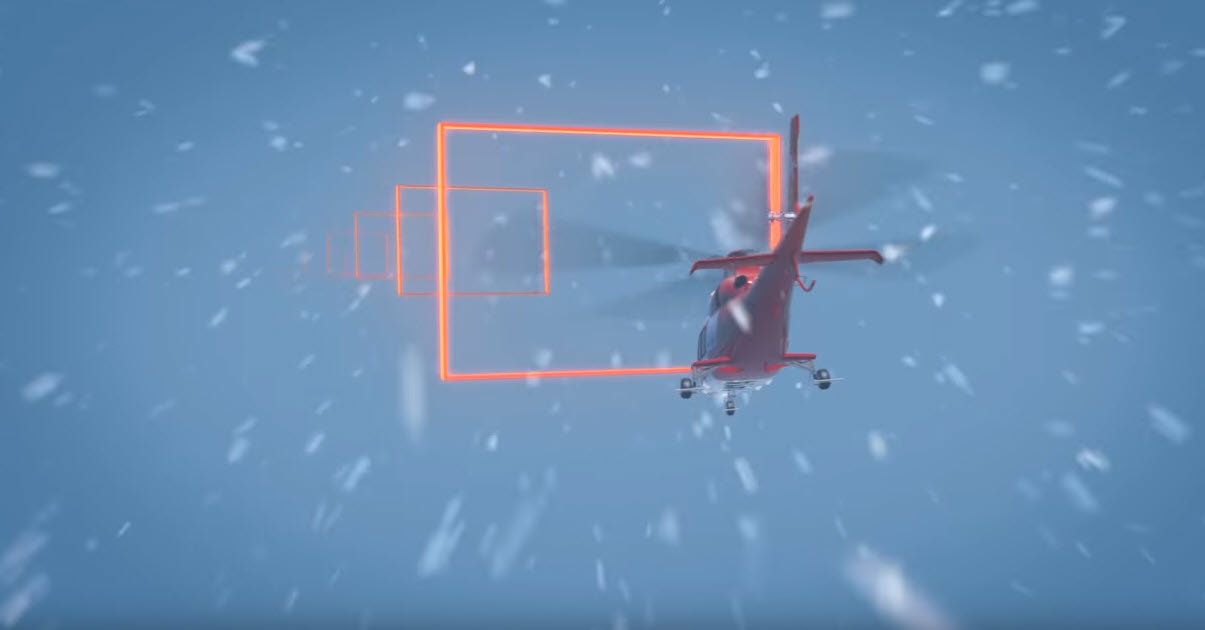
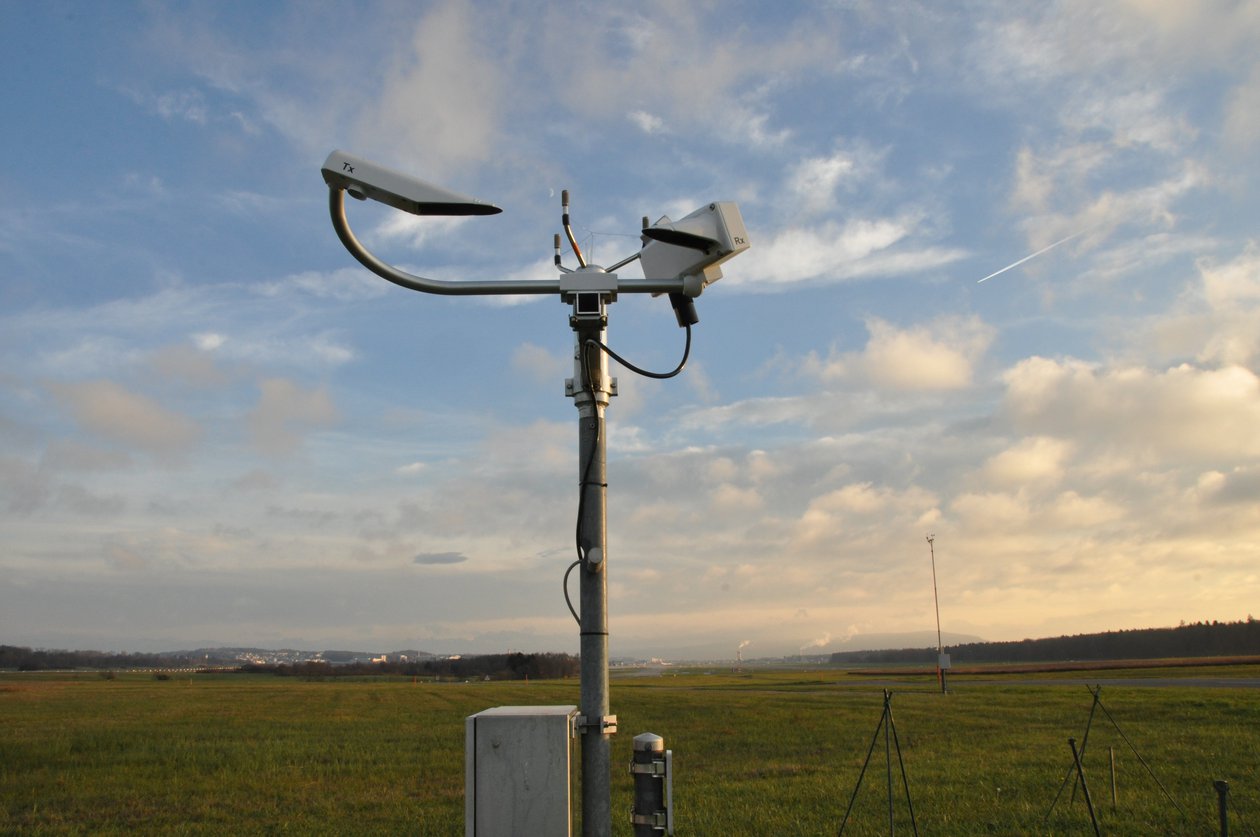
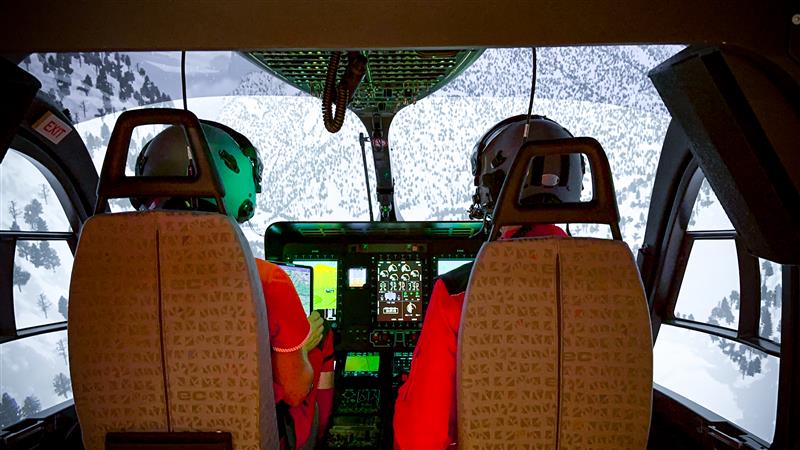
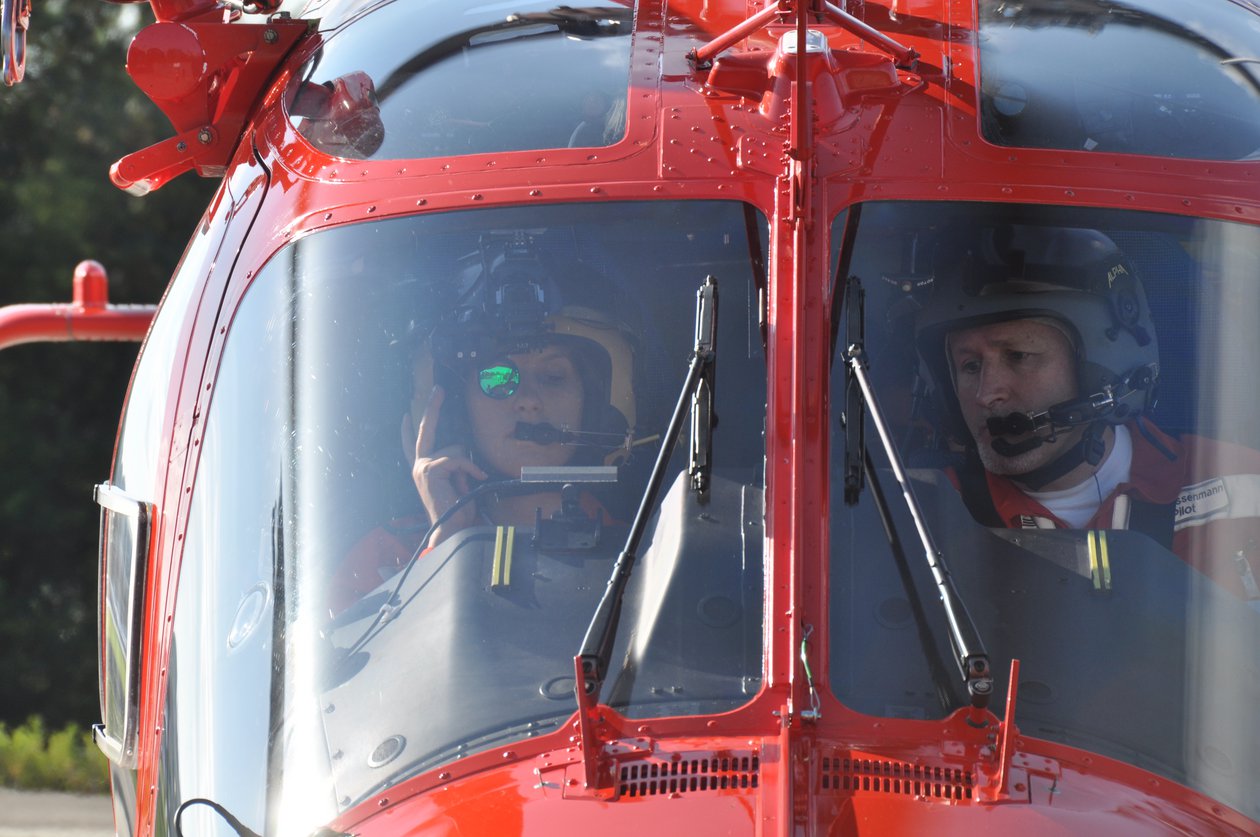

![[Translate to English:]](/fileadmin/seiteninhalt/4_Aktuell/3_Medien/2_Medienmitteilungen/2024/Rega_Visualisierung_IFR-Anflug.jpg)
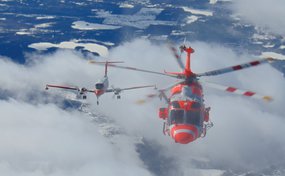
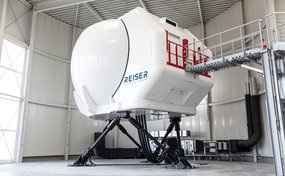
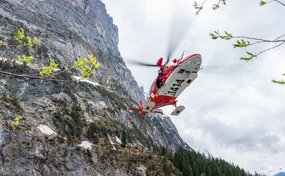
![[Translate to English:]](/fileadmin/_processed_/3/c/csm_still_spitalanflug_instrumente_6af263bb7f.png)
![[Translate to English:] Rega-Drohne im Flug](/fileadmin/_processed_/9/9/csm_190412_jahresmedienkonferenz_drohne_db0d77204a.jpg)
